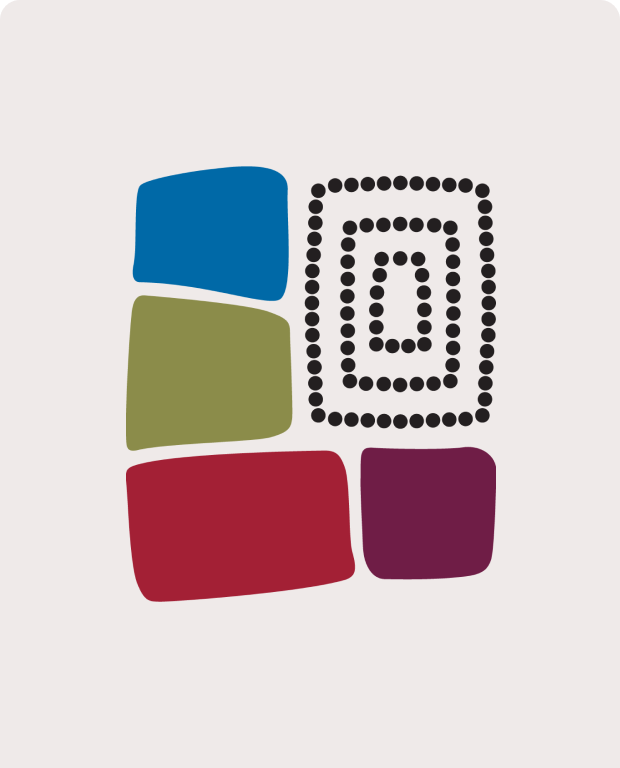Evaluating a community of practice for Torres Strait Islander health and wellbeing

Meriba buay – ngalpan wakaythoemamay (We come together to share our thinking): Evaluating a community of practice for Torres Strait Islander health and wellbeing
Project Aim and Objectives
Aims:
- Evaluate how a Community of Practice (CoP) can best assist Torres Strait Islander researchers and community members to build research knowledge translation capability.
- Enhance social capital through the mobilisation of knowledge about adaptability and resilience initiatives and strategies to address natural environment concerns relating to Torres Strait Islander people.
Objectives:
- Develop a sustainable model of knowledge translation for Torres Strait Islander peoples by implementing and evaluating a multi-disciplinary Community of Practice (CoP) that focusses on the social determinants of health and wellbeing.
- Evaluate how a CoP model can best assist Torres Strait Islander researchers, communities and organisations to build high quality, decision-linked and relevant health research knowledge translation (KT) capability.
- Assess the effectiveness of CoP activities in raising awareness of research outputs in the community.
Project Team
Project leader: Felicia Watkin Lui
Administering organisation: James Cook University
Project timeline: 01/12/2017—31/03/2019
Methodology
The project adopted the following methods:
Participatory Action Research (PAR) approach that included the following:
- Systematic literature review of knowledge translation frameworks from the user perspective.
- Development of criteria to guide CoP membership (A CoP Handbook). CoP meetings – face to face and video conference.
- International collaboration with knowledge mobilisers in Canada.
- Knowledge mobilisation events such as short creative performance “Woer Wayepa” at the Cairns Indigenous Arts Fair in 2018 and a Boho Interactive facilitated taster night on Thursday Island.
- Interviews and focus groups with CoP members
- Development of an evaluation framework based on two complementary theoretical frameworks:
- Consolidated Framework for Implementation Research (CFIR).
- Normalisation Process Theory (NPT).
- Implementation of the evaluation framework.
Project Findings
The evaluation of the CoP identified the following key findings:
Context (outer setting) – Knowledge translation (KT) has only attracted serious recognition and commitment in the last 5-10 years. Both the CoP’s host institution and CoP members’ (other) employer organisations were in the early stages of the KT journey and most people working within them had a limited understanding of its theory and practice.
This was a network, not a CoP. A community of practice (CoP) needs to have a narrower remit and be very focused.
-
As a network:
- A culturally connected group inspiring productive inquiry can be an effective way to build KT capacity.
- Membership requires a facilitator and/or lead.
- A network needs a strong, active secretariat to hold it together and achieve outcomes.
- With a strong common bond and commitment, and mutual respect, a network can be a successful mechanism for enhancing the knowledge mobilisation skills of its members.
- A network needs time (12-18 months) to develop and consolidate those skills before it can fully partner with community groups to carry out knowledge mobilisation (KM) activities and achieve impact.
- There is great potential for a knowledge mobilisation (KM) network to contribute to and derive benefit from international interaction, especially with other countries with recognised First Nations peoples.
- Effective KT requires experiential and research knowledge and allows communication with diverse audiences.
- Information cannot be called ‘knowledge’ until it is taken up, interpreted, accepted and leads to action.
- International collaboration is a valuable way of enhancing KT capacity.
- Performance (games-based) approaches to KT can be effective.
Project Outcomes
|
Knowledge |
|
|
Awareness |
|
|
Behaviour and skills |
|
|
Other |
|
Project Video
The project team thanks all artists and photographers featured in this video, as well as the Japan Meteorological Agency for use of the initial image of the globe based on stunning time lapse video of Earth from space (https://www.youtube.com/watch?v=qfptCfAkbtI) and the Torres Strait Island Regional Council for permission to use an image of rising sea levels. Video produced and directed by the Jo Ze spArks.
Related resources
The case for a Torres Strait Islander-driven, long-term research agenda for environment, health and wellbeing, K. Cheer et al. 2020, Australian and New Zealand Journal of Public Health, online, doi: 10.1111/1753-6405.12979
Torres Strait Islander Researcher’s Community of Practice
Abstract for How do you do knowledge translation (KT) that works? KT Forum – April 2019
Videos of presentation and interview at the April 2019 Knowledge Translation Forum

